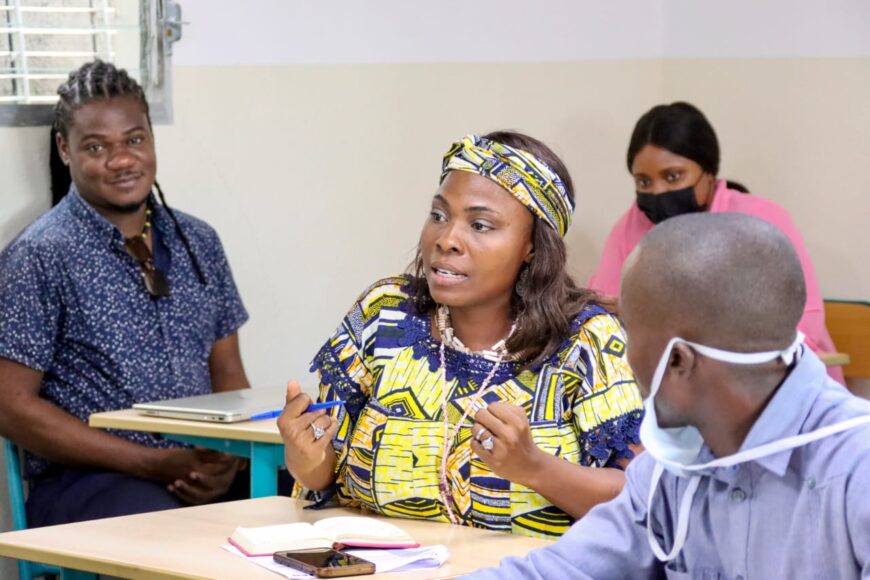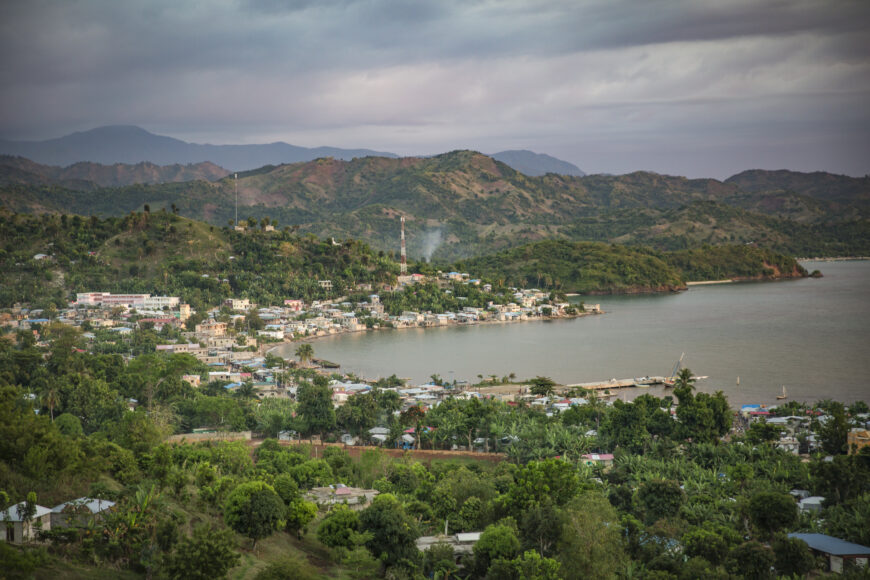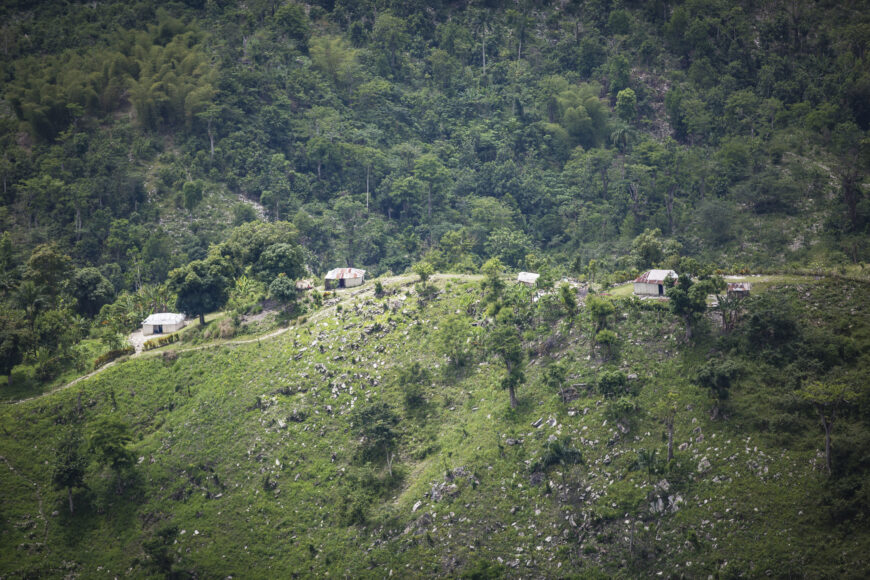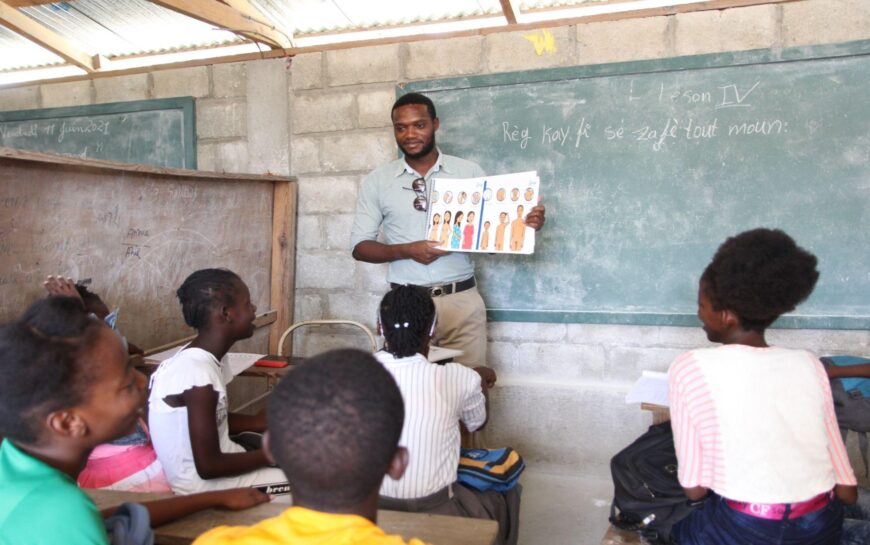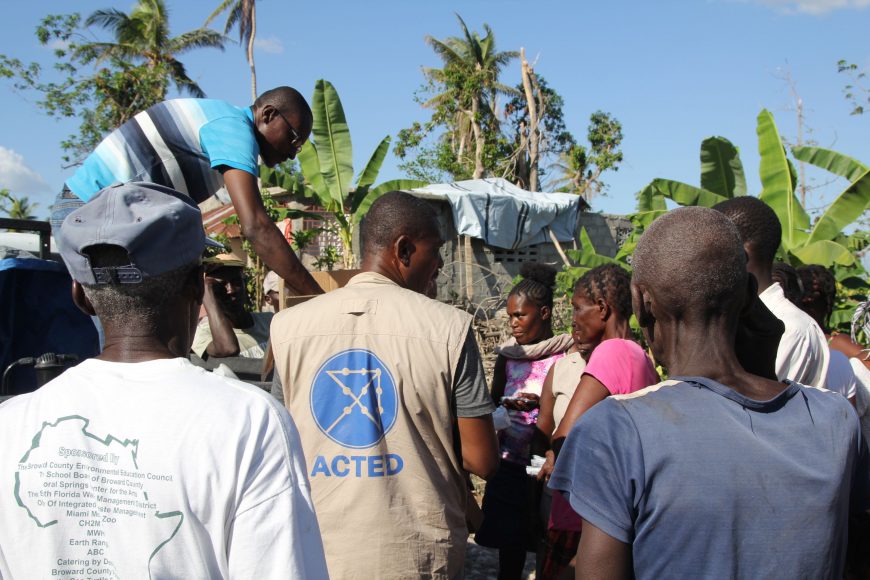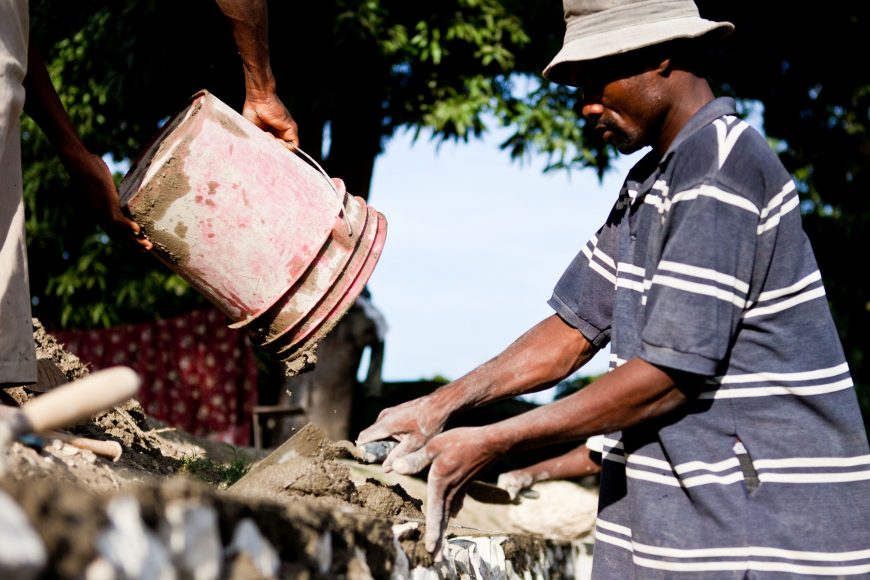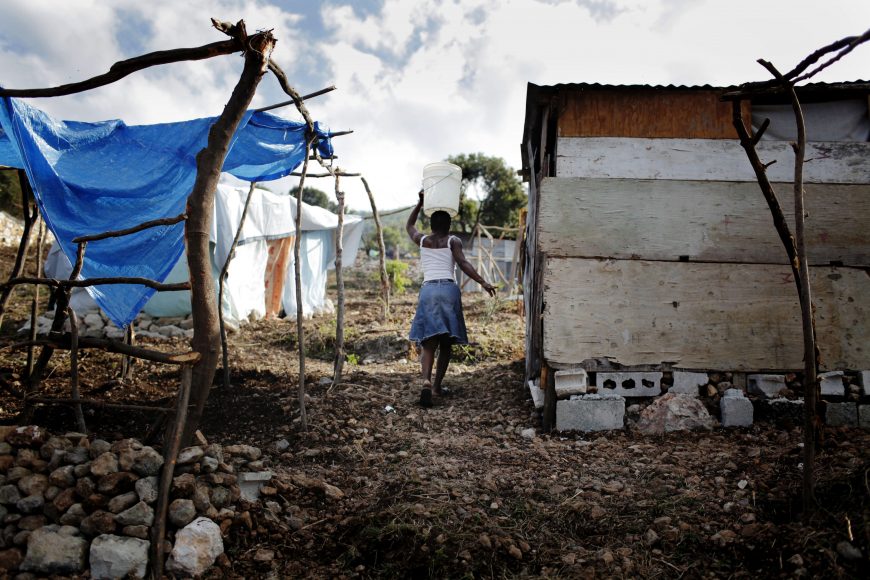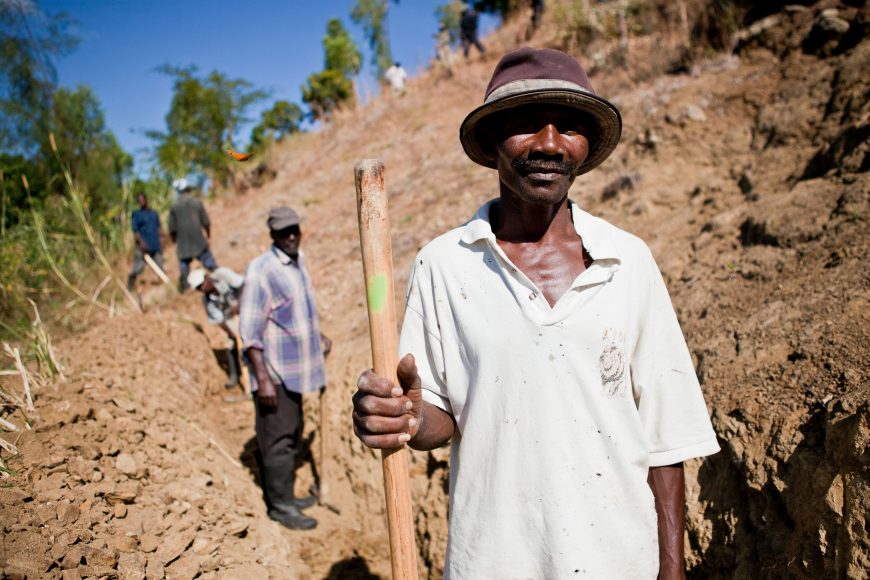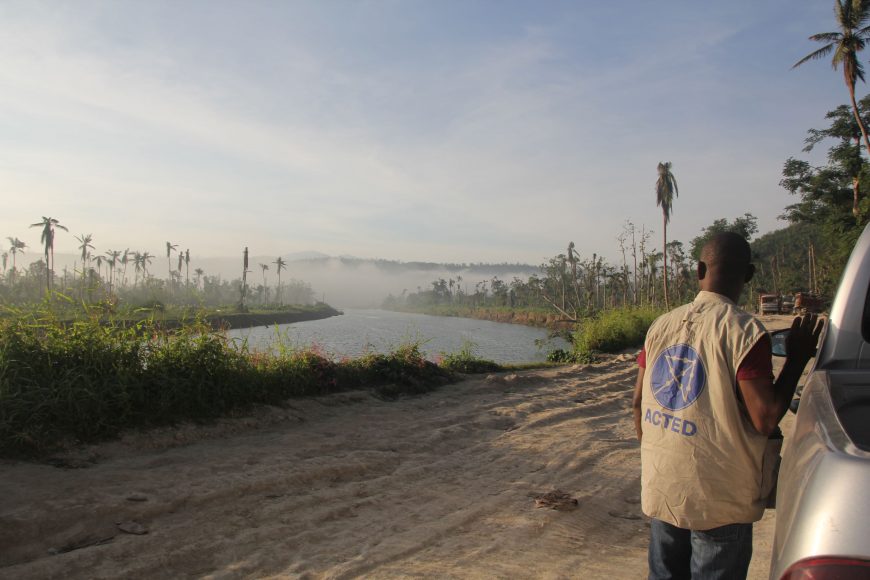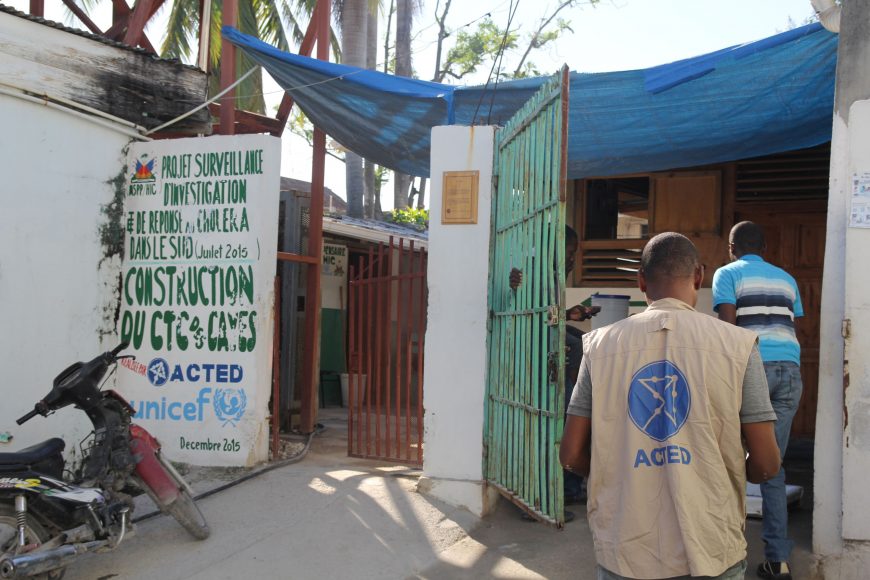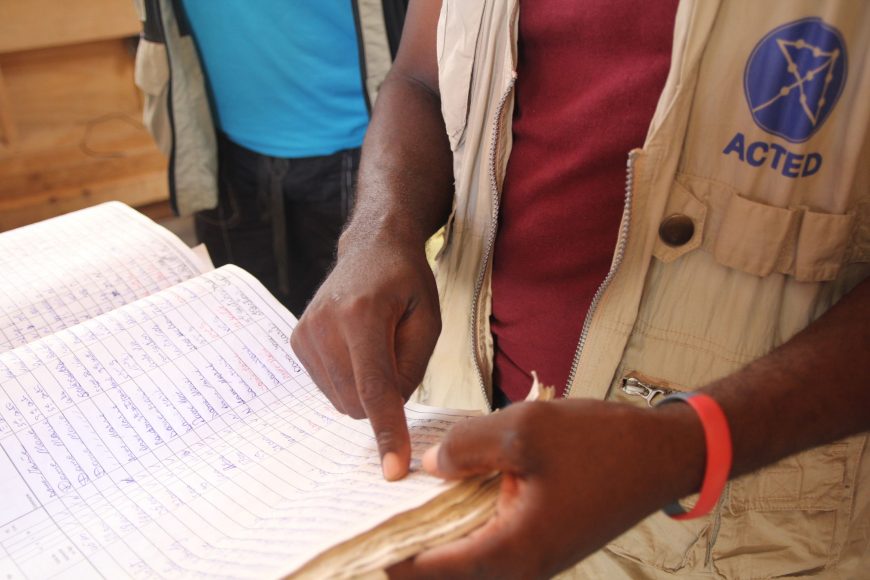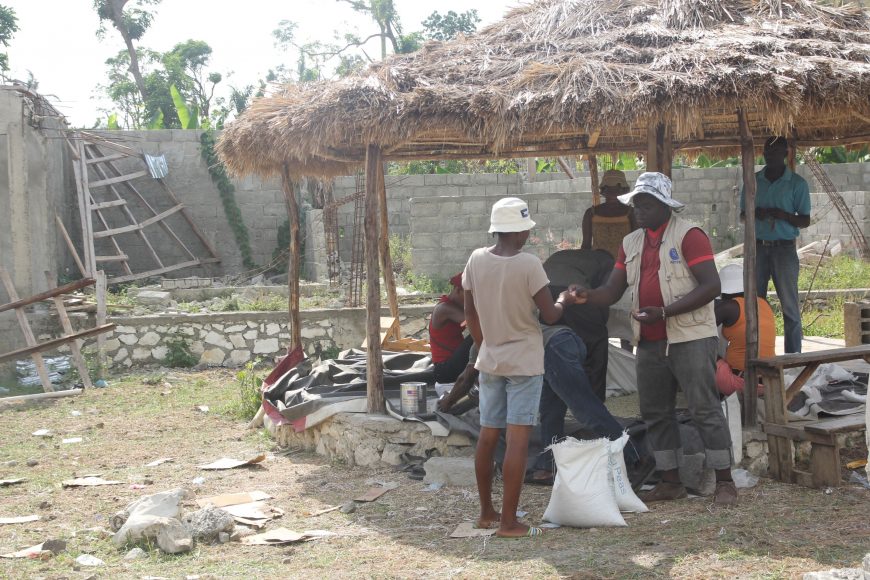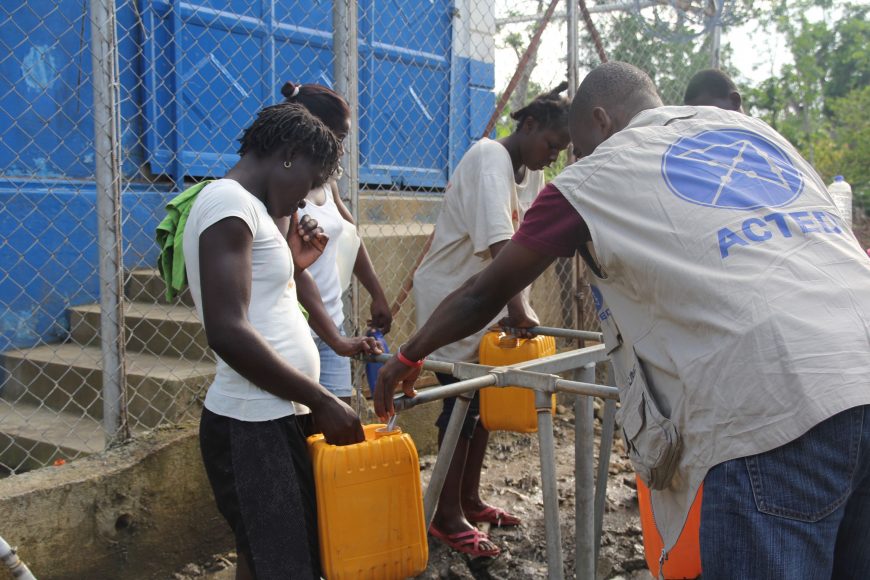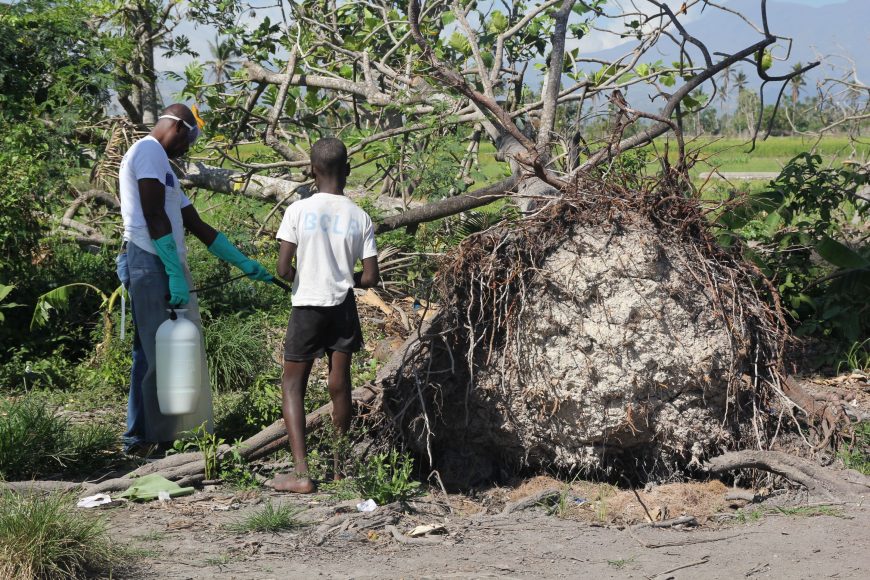Since 2004, Acted has been active in Haiti, providing emergency responses to the most vulnerable populations affected by natural disasters, epidemics and conflicts, while articulating sustainable recovery solutions. In order to meet essential needs while promoting sustainable development, Acted is mainly involved in these key sectors: (i) the fight against the cholera epidemic via access to drinking water, hygiene and sanitation, (ii) the protection of populations affected by the violence of armed groups and the management of sites for displaced persons, (iii) assistance for the most vulnerable people (food security, MPCA etc.) (iv) support for economic recovery, particularly in agriculture. In 2024, with offices in Port-au-Prince and Mirebalais and mobile teams, the organization will deploy around 100 staff across several departments, including the Grand Sud, Ouest, Artibonite and Centre.
Haiti’s geographical location makes it particularly vulnerable to natural disasters such as earthquakes, droughts and hurricanes, aggravated by the effects of climate change. The latter not only increases the frequency of these disasters, but also amplifies their consequences in a context of endemic poverty and weak response capacities. At the same time, the country has been going through a deep political and security crisis since the assassination of President Jovenel Moïse in July 2021, leading to an upsurge in violence and corruption. In response to this cycle of chaos, 2023 saw a multiplication of internally displaced persons (IDP) sites in the Port-au-Prince metropolitan area (ZMPAP) and host communities, bringing the total number of IDPs to over 580,000.
In 2024, almost 4.4 million people, or 45% of the population, face acute food insecurity (IPC , September 2023 ). The growing hold of armed groups, now controlling around 90% of the capital, combined with the destruction of social infrastructure and forced displacement, is exacerbating a humanitarian crisis that requires an emergency response tailored to the needs of vulnerable populations.
Acted in Haiti
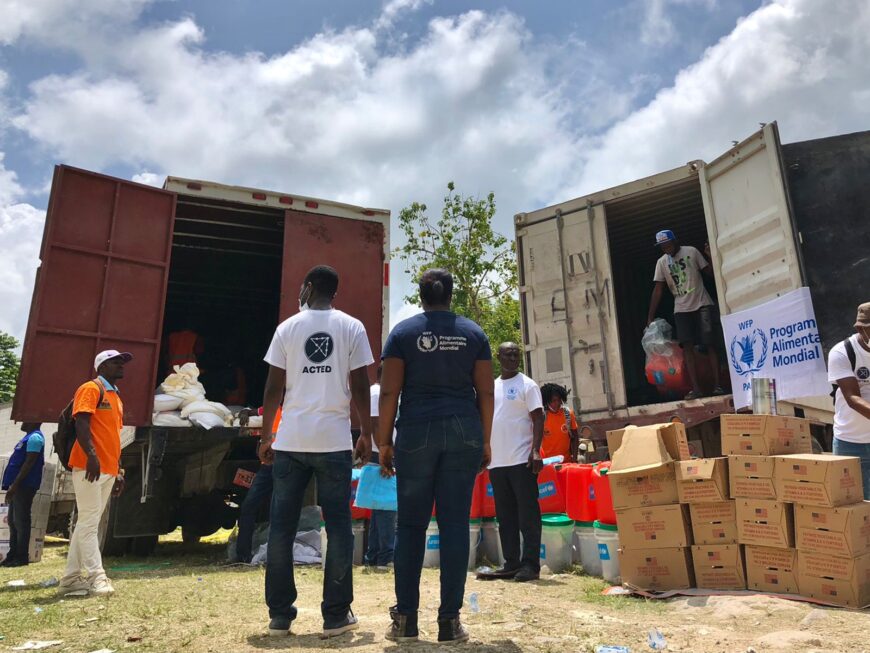
Acted is a key player in Haiti, providing an integrated response to humanitarian crises and sustainable solutions, in line with its 3ZERO vision: Zero Exclusion, Zero Carbon, Zero Poverty. In response to frequent natural disasters and the current security crisis, Acted is developing an integrated, multi-faceted response: reducing climate risks, rehabilitating damaged infrastructures, while providing emergency aid to populations affected by violence and forced displacement.
Acted coordinates the sites hosting Internally Displaced Persons (IDPs) in the ZMPAP and pilots the Rapid Response Mechanism (RRM) in Artibonite. Acted strengthens the resilience of communities by improving their ability to absorb, adapt and transform in the face of crises. The organization is committed to promoting effective governance, ensuring equity and respecting human rights, while contributing to sustainable socio-economic development and environmental protection.
Video UNICEF Haiti – Combatting cholera in Haiti: home straight
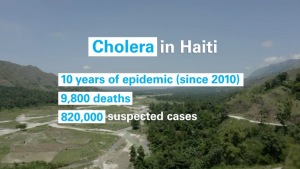
His name: Vibrio cholerae. Its victims: Haiti and its inhabitants. Since October 2010, the epidemic is rife. Nearly 10,000 people died, and 820,300 people affected by cholera-like diarrhea. Today, in most parts of the country, cholera is being defeated. There are still some suspect cases of cholera in the hard-to-reach areas of the Center and Artibonite departments. But even there, the diarrheal disease is about to be eliminated. No cholera case has been confirmed since February 4, 2019.
